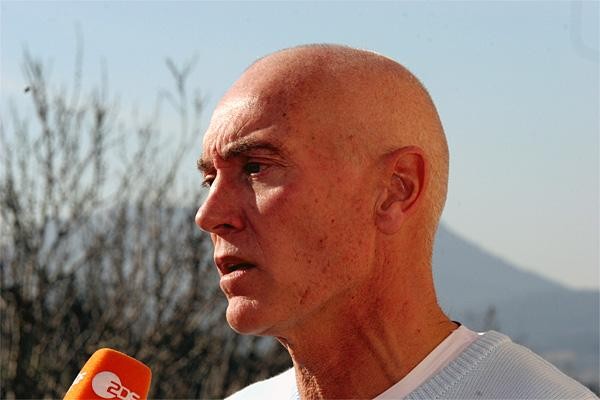Astana manager admits being naive
In a lengthy interview to Suisse magazine Le Temps , Astana's general manager Marc Biver has...

In a lengthy interview to Suisse magazine Le Temps, Astana's general manager Marc Biver has revealed that the team felt double-crossed. The Swiss has no feeling of guilt, just helpless in events he felt he had no control over. Biver did admit however, that there was a certain degree of naïveté on Astana's part, especially after the morale was low, following the crashes from the captain's, Alexandre Vinokourov and Andreas Klöden.
"There were a lot of people in the entourage of 'Vino'. His father, but also a lot of Kazakhs that I didn't know," Biver explained that he felt like Mario Kummer, both thinking they lost control of the team a bit.
Biver maintained that Vino was the only one putting pressure on himself. "He surrounded himself with bodyguards and wore those dark sun glasses. Like a star," the Swiss was trying to explain the captain's behaviour. "A mechanic who knows him well told me that he had never seen the Kazakh so nervous," was further evidence that things weren't as usual.
The Swiss manager described his relationship with Vinokourov as not very tense, but also admitted that "Vino is not very open. He doesn't talk much."
Biver defended Michele Ferrari, whom he has known since the "EPO years [90's]." I always found him very direct, honest and nice. Back then he already made great training plans. I can't judge him by anything else, I don't have proof," said Biver, who also pointed out that Vino tested positive, which he didn't think was Ferrari's wrong-doing.
Astana's general manager also said that his relationships with Tony Rominger had not suffered. The former professional was a client of Ferrari in the past and managed several riders involved in doping cases, including Astana's Kessler and Vinokourov.
Biver came to the conclusion that one can't trust anybody anymore in cycling and that there is no solidarity, but he doesn't want to quit as it would be like "leaving the ship when the passengers need help."
The latest race content, interviews, features, reviews and expert buying guides, direct to your inbox!
The Swiss cycling enthusiast put the number 200,000 euro to the financial loss because of quitting the Tour, but acknowledged that the damage to the team's image and credibility can't be measured in money.
Biver admitted that he'd like to follow through and ask Vinokourov for the entire salary back, as stated in the Astana contracts, but was not sure yet what the Kazakh federation will do. He is not too worried right now with the team's future as "Danial Akhmetov [Kazakh defense minister and president of the national cycling federation -ed.] told me Saturday that he'll continue. He gave me all the guarantees. The political interest of Astana goes well beyond the case of Vinokourov. There are 14 training centres in Kazakhstan where 6,000 young kids are taken care of."
As far as the effectiveness of doping controls is concerned Biver had mixed feelings, stating that "I hope those that have ideas in their heads will quickly subscribe to them. Having said that there will always be cheaters, despite toughest measures. In some countries they cut off the thief's hand and there are still thieves. People are made like that. They always tried to be faster, stronger, more intelligent."